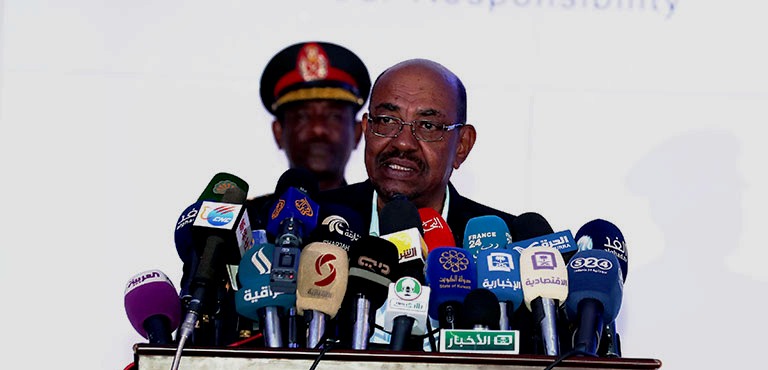Sudan’s new constitution to be approved by next parliament: al-Bashir

April 27, 2018 (KHARTOUM) – The Sudanese President Omer al-Bashir on Thursday said the permanent constitution would be approved by the elected parliament following the 2020 elections.
On Thursday, al-Bashir met with the parliament speaker Ibrahim Ahmed Omer who handed him over the parliament response to his address before the National Assembly earlier this month.
In a press release following the meeting, al-Bashir said the “next legislature would approve the permanent constitution according to the recommendation of the national dialogue”.
“But that doesn’t prevent from holding broad discussions on the constitution in order to prepare a draft to be presented before the next parliament to approve it and then it would be presented to the Sudanese people in a referendum,” he said
The Sudanese president said the various branches of the government need to work in harmony to face the existing challenges.
He described the participation of the various political forces in the executive and legislative powers as “significant success”, saying it comes in implementation of the national dialogue’s recommendations.
Al-Bashir further said cooperation among the various government branches would continue until the 2020 elections, saying these elections would lay the foundation for a new era of political practice.
In January 2014, al-Bashir called on political parties and armed groups to engage in a national dialogue to discuss four issues, including ending the civil war, allowing political freedoms, fighting against poverty and revitalising national identity.
In October 2016, the political forces participating in the national dialogue concluded the process by signing the National Document which includes the general features of a future constitution to be finalised by transitional institutions.
However, rebel groups and opposition parties refused to join Khartoum process as they demand the government to end the war and ensure freedoms in the country ahead of the dialogue.
(ST)
